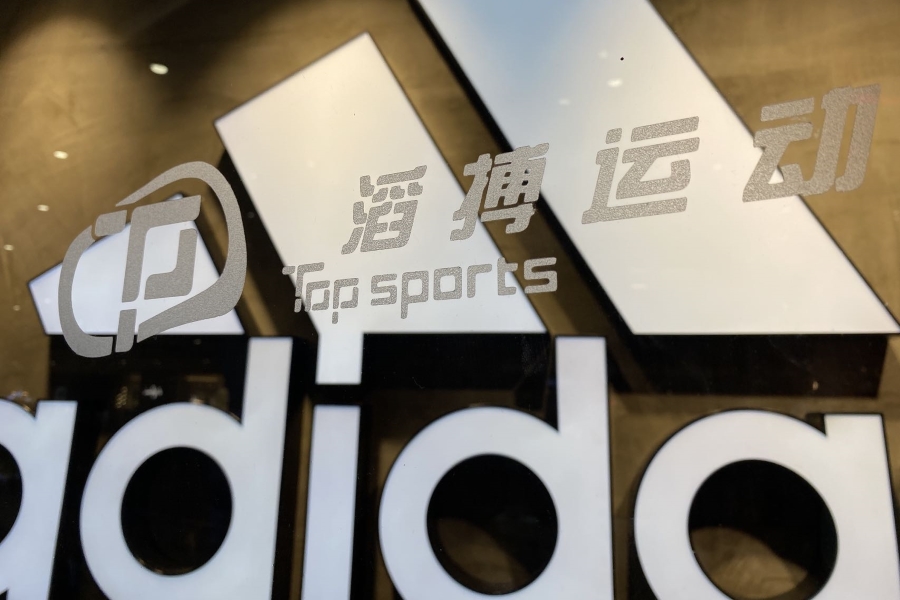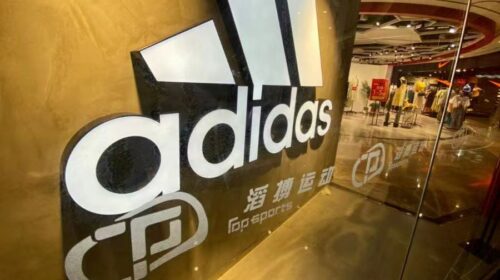Topsports Takes Time to Hit Its Stride after Covid and Supply Woes

The sportswear retailer posts lower full-year profits but gives out special dividends in the hope of shoring up investor confidence
Key Takeaways:
- Topsports revenue and profit both fell by around 12% in the last fiscal year due to the pandemic and supply chain disruptions
- The company looks undervalued, but investors are watching to see if business picks up in the next couple of quarters
By Fai Pui
A sporting goods firm with a network of megastores and big-brand partners might hope to be coasting towards healthy profits when China is promoting a national fitness drive. But for sportswear company Topsports International Holding Ltd. (6110.HK), the Covid retail slump has turned the business challenge into more of an endurance test than a sprint.
That’s a takeaway from the company’s latest full-year earnings report, as the Chinese retail partner for Nike (NKE.US) and Adidas (ADS.DE) feels the strain from successive pandemic waves and lockdowns. And just when Covid had looked to be abating, global supply chain disruptions sent its shipping costs soaring, holding back its performance even more.
With the pain all too obvious, investors had already positioned for a tough trading period, sending the Topsports share price plunging 52% in the past year, wiping nearly HK$40 billion ($5 billion) off its market value.
And when Topsports released its financials last week for the year to end-February, the numbers showed that the market was right to have been concerned: revenue fell by around 12% to 31.9 billion yuan and net profit declined by a similar margin to 2.45 billion yuan.
Despite the weaker profits, the company had an unexpected treat for investors. It paid 0.07 yuan per share in end-of-year dividends and 0.23 yuan per share in special dividends, a total of 0.43 yuan per share for the whole year including interim dividends, even higher than its earnings per share of 0.3945 yuan.
News of the dividends, an incentive to stick with the stock through to potentially better times, helped push the share price up by 4.3% the next day.
Topsports is far less well-known than other Chinese leisure brands such as Li Ning (2331.HK), Anta (2020.HK) and Xtep (1368.HK) because it mainly operates as an agent and does not have its own brand. Its two biggest clients are Nike and Adidas, contributing nearly 87% of its revenue.
Thus, Topsport revenues sank in tandem with a 12% drop in Chinese sales by these two international brands. Sales revenue associated with other brands sold by Topsports also fell 6%, accounting for just under 13% of its total revenue.
Rising gross margins
The market was already braced for a profit pullback due to the pandemic, and the effects of a consumer boycott of some foreign brands over their stance on cotton from Xinjiang.
But independent stock commentator Kenny Wen, for one, saw some positives in the Topsports earnings. “Its business performance was not without bright spots. Among other things, its gross margins rebounded,” he said.
Gross margin rose 2.6 percentage points to 43.4%, which the company attributed mainly to a strategy of lower discounts, better discount management and closer relationships with partner brands.
The company has also been restyling and upsizing its stores in recent years to turn them into one-stop experience centers to generate online sales.
By the end of February, it had 7,695 directly operated stores, 311 fewer than a year earlier. But average store sales did not shrink, and the gross store sale space expanded around 5%, as the company opened 239 stores with more than 300 square meters of floorspace. But the slowdown in consumer traffic during Covid has prevented the potential benefits from the big-store strategy from flowing to the bottom line.
Most investment banks revised down their target prices for the stock after the earnings. CICC noted that the company continues to face high levels of pandemic uncertainty, which has generally hurt retailers’ valuations. It cut the target price by 31% to HK$7.31 while maintaining an “outperform” rating.
Credit Suisse commended the company for its generous dividends but expects first-quarter sales to decline even further due to the Covid containment measures adopted in some Chinese cities in recent months. It adjusted down the target price from HK$6.3 to HK$5.9 and maintained a “neutral” rating.
BofA Securities also reduced its target price from HK$10.6 to HK$9.2 but said the worst effects of the pandemic look to be over, even though sales during March and May could continue to be affected. It kept an “overweight” rating for the company, given its efforts to develop other brands including Skechers and Li Ning to gain new growth drivers.
Lower valuation
Topsports is evidently undervalued compared with other sports companies, with a forward price-to-earnings (P/E) ratio of only 10.5 times. This is far below the likes of Li Ning, Anta Sports and Xtep International, whose ratios range between nearly 22 times and almost 28 times, according to Bloomberg data. The company’s two core client brands, Nike and Adidas, have ratios between around 20 and 32 times, also much higher than Topsports.
The other brands enjoy a higher valuation because they sell their own products with relatively high margins while Topsports operates as the agent with lower margins, explained stock commentator Kenny Wen, though he saw scope for this to shift.
“The company is undervalued at the moment. But the market might reassess if its sales can improve in the next one or two quarters,” he said.
Topsports was spun off from shoe giant Belle International, which was privatized by the Private Equity giant Hillhouse Capital in 2017. Topsports itself went public in October 2019, with investors hoping it could race ahead after China launched its latest nationwide fitness campaign. Little did the market suspect that the company’s performance would be held back by a persistent pandemic and by the backlash against western bans on Xinjiang cotton.
In the latest results, the company’s management referred back to a comment made in last year’s financial report that the appeal of sport lies partly in the need to cultivate physical and mental self-discipline and endurance.
Now after another year of pandemic challenges, investors will be looking to see if the company’s managers can harness those sporting qualities to face the fitness test ahead.
To subscribe to Bamboo Works free weekly newsletter, click here





